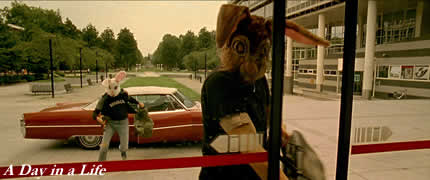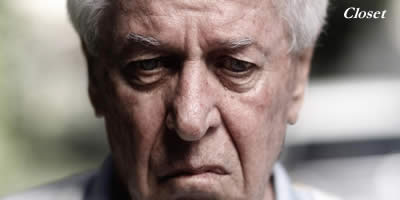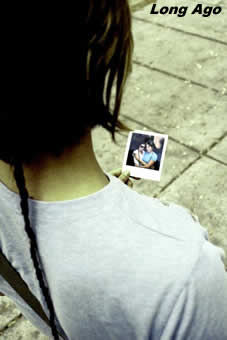He served as the first Artistic Director of the Palm Springs Film Festival (1989 -1993) and the Hamptons Film Festival (1993 -1996) and was the Programming Director of the Vancouver International Film Festival (1988 -1992), which he helped found in 1980. He has also served as the Director of the Goodwill Games Film Festival, the Women in Cinema Festival and the Washington State Centennial Film Festival. He has served on the Award Juries of several international film festivals and the Independent Spirit Awards. He has written articles on film and filmmaking for Variety Books, Reel News and the Hollywood Reporter, among other publications. He currently serves on the Advisory Council for the Documentary Channel, the International Film Festival Summit and is a Board member of the Seattle International Film Festival.
Over the course of his career, Macdonald has arranged or moderated tributes, staged interviews, panel discussions, seminars and press conferences for such diverse talents as Peter Weir, Mel Gibson, John Sayles, James Stewart,  Marcello Mastroianni, Steven Spielberg, Robert Wise, Steven Soderbergh, John Schlesinger, Bertrand Tavernier, and Martin Scorsese, among many others. He has been named a Chevalier of the Order of Arts and Letters by the Republic of France for his contributions to French Cinema, presented with a Distinguished Citizen Award by the Mayor of Seattle and Event Producer of the Year Award from the N.E.P.A.
Marcello Mastroianni, Steven Spielberg, Robert Wise, Steven Soderbergh, John Schlesinger, Bertrand Tavernier, and Martin Scorsese, among many others. He has been named a Chevalier of the Order of Arts and Letters by the Republic of France for his contributions to French Cinema, presented with a Distinguished Citizen Award by the Mayor of Seattle and Event Producer of the Year Award from the N.E.P.A.
Bijan Tehrani: What will be new in this year’s festival?
Darryl Macdonald: Quite a lot, actually. Obviously we have a large body of films from the countries you usually expect: the UK, Australia, France, Germany and Canada – and a remarkable number of excellent shorts from Ireland and New Zealand. Every year we try to pick a country or a region in the world that is having an extraordinary year in short film making, and France is the prime example this year. There are a spectacular array of new talents emerging out of France in short filmmaking, and certainly an extraordinary number of really exceptional short films, so they were a natural choice for a special spotlight at this year’s festival.
I guess one of the striking things about the films that we have been seeing this year, and the ones that have been submitted to us, is how much broader the range of countries they are coming from is. We are seeing excellent shorts from Kenya, Somalia, Kazakhstan, the Republic of Congo, Iraqi Kurdistan and certainly Romania. Romania has been no stranger to the festival field in the last couple of years in terms of its feature filmmaking, but now we are seeing some amazing short films emerge out of Romania. For example, the Berlin Film Festival Golden Bear winner for Best Short, “A Beautiful Day For a  Swim”, which is anything but a beautiful short – I mean, it’s incredibly well made, but its not exactly light comedic entertainment… In many ways, it’s akin to the feature filmmaking emerging from Romania – a reflection of a society struggling to reinvent itself after decades of repression. Other countries represented in this year’s lineup that we haven’t seen a lot of short films emerging from in the past are Algeria, the Czech Republic, Columbia, Argentina, Poland and South Korea. There is a lot of interesting short filmmaking going on in South Korea right now, and there has been for a number of years. The technical quality was always evident, but the scripting has recently been getting much better & more accessible.
Swim”, which is anything but a beautiful short – I mean, it’s incredibly well made, but its not exactly light comedic entertainment… In many ways, it’s akin to the feature filmmaking emerging from Romania – a reflection of a society struggling to reinvent itself after decades of repression. Other countries represented in this year’s lineup that we haven’t seen a lot of short films emerging from in the past are Algeria, the Czech Republic, Columbia, Argentina, Poland and South Korea. There is a lot of interesting short filmmaking going on in South Korea right now, and there has been for a number of years. The technical quality was always evident, but the scripting has recently been getting much better & more accessible.
Other trends are apparent: there is something in the air in terms of subject matter as well. Of course we have always had large numbers of genre films – thrillers, films about dysfunctional families, horror films, and over the last half decade, a number of films that deal with immigration issues, security, and the turmoil in the Middle East. We are seeing fewer films about 9/11 and Iraq, and fewer films about other domestic issues as well. But what we are noticing is an overall a darker tone to a lot of the films coming to the festival this year. A kind of a darker perspective about what is going on in the world in general, and what is going on in families in society in particular. A lot of it comes in the form of dark comedies. But we are also seeing a lot of films dealing with coming of age, or the school experience, or teenagers entering young adulthood, that have a more negative view of the world. They are a little more nihilistic and focus a little more on the darker side. It’s obviously a reflection of what is going on around us. Stories about what is happening to individuals in America are inevitably reflecting what filmmakers’ pervading feeling is about what is going on in America in general. So there is a more negative approach to the stories being told. In the past we have seen a lot of films with redemptive endings. This year we are not seeing as many redemptive endings, and the films are in some ways richer for it; they don’t seem as straight out of Screenwriting 101. In that sense they are more European in feel, and they dwell much more on character than they do on plotting; in that sense, they’re more personal films. We are seeing stories that aren’t resolved formulaically; they leave you with more to wrap your mind around. It is going to be an interesting year.
films coming to the festival this year. A kind of a darker perspective about what is going on in the world in general, and what is going on in families in society in particular. A lot of it comes in the form of dark comedies. But we are also seeing a lot of films dealing with coming of age, or the school experience, or teenagers entering young adulthood, that have a more negative view of the world. They are a little more nihilistic and focus a little more on the darker side. It’s obviously a reflection of what is going on around us. Stories about what is happening to individuals in America are inevitably reflecting what filmmakers’ pervading feeling is about what is going on in America in general. So there is a more negative approach to the stories being told. In the past we have seen a lot of films with redemptive endings. This year we are not seeing as many redemptive endings, and the films are in some ways richer for it; they don’t seem as straight out of Screenwriting 101. In that sense they are more European in feel, and they dwell much more on character than they do on plotting; in that sense, they’re more personal films. We are seeing stories that aren’t resolved formulaically; they leave you with more to wrap your mind around. It is going to be an interesting year.
Overall, many of the fillms deal with relationships and themes of individual exploration. In what seems almost a reaction to the pessimistic worldview, there are also a great number of comedies and films revolving around sexual themes as well. One striking trend is the number of films focusing on stories about family. Family seems to be reemegering as a source of great stories, certainly in American filmmaking, and in Europe as well. The films that we are seeing from South America and Asia tend to dwell more on non-familial relationships, and are less about delving into family dynamics. A very interesting year there. I couldn’t tell you where this is all coming from,  and why these ebbs and flows come about in the course of short filmmaking, where you will have filmmakers from all over the world seeming to coalesce around an approach to subject matter and themes – I guess that’s what is referred to as ‘the Zeitgeist’.
and why these ebbs and flows come about in the course of short filmmaking, where you will have filmmakers from all over the world seeming to coalesce around an approach to subject matter and themes – I guess that’s what is referred to as ‘the Zeitgeist’.
BT: Should we expect to see a lot of the filmmakers coming to the festival also?
DM: Oh yeah. Last year we had north of 300 filmmakers attending Short Fest. This year we are expecting at least 350 to 400 filmmakers to attend. One striking thing that is happening at the festival this year is a major jump in the number of new companies in the shorts acquisitions business. Startups that are airing shorts both on the web and on cell phones, as well as companies that are producing shorts in-house, have signed on in record numbers for the festival. So the young filmmakers who come to the festival this year are going to be encounter a lot more opportunities that this festival has been able to offer them in the past. It’s incredible; the number of companies that have emerged in this field, the deep pockets they have, and how hungry they are for short films. It’s great. It should be a very healthy year for film sales, and for young filmmakers to have opportunities to branch out in their careers, and to move from short filmmaking into feature filmmaking – or to make more films in the short film format if that is their choice.
BT: What sort of events do you have within the festival?
DM: Well, of course we have our ShortFest Forums – the seminars, master classes, and one-on-ones that are available free to all the filmmakers that attend, as well  as the public. Those are very active and lively. One standout among those programs this year is a master class in acting put on by Bill Pullman. Every year we try to get one very major talent to give a master class, which is kind of a cornerstone of the festival (last year, we had both Jason Reitman and Bill Plympton present master classes), and we are very grateful to have Bill Pullman among our standout participants this year. We will also have multiple Oscar-nominated cinematographer William Fraker presenting a screening of the restored version of “Rosemary’s Baby”, deconstructing the movie from a cinematographer’s perspective. Another master class features film critics David Ansen and Claudia Puig (USA Today) exploring a kind of critical perspective for nascent filmmakers. The point of these programs is to provide emerging filmmakers and filmgoers alike with the opportunity to gain knowledge through an interchange with respected experts in the field of film. Apart from that, of course, we have parties every night for the filmmakers, and an active Film Market, which is jammed virtually the entire festival.
as the public. Those are very active and lively. One standout among those programs this year is a master class in acting put on by Bill Pullman. Every year we try to get one very major talent to give a master class, which is kind of a cornerstone of the festival (last year, we had both Jason Reitman and Bill Plympton present master classes), and we are very grateful to have Bill Pullman among our standout participants this year. We will also have multiple Oscar-nominated cinematographer William Fraker presenting a screening of the restored version of “Rosemary’s Baby”, deconstructing the movie from a cinematographer’s perspective. Another master class features film critics David Ansen and Claudia Puig (USA Today) exploring a kind of critical perspective for nascent filmmakers. The point of these programs is to provide emerging filmmakers and filmgoers alike with the opportunity to gain knowledge through an interchange with respected experts in the field of film. Apart from that, of course, we have parties every night for the filmmakers, and an active Film Market, which is jammed virtually the entire festival.
BT: What are the awards, and how much cash is given to the winners?
DM: This year we have over $85,000 in cash awards and production grants, and 22 different prizes. The festival itself qualifies its award winning short films for Oscar submission in a number of categories. Six films presented at ShortFest last year went onto win Oscar nominations, including the winners in the Live Action and Documentary Short categories. We have our CinemaWithoutBorders award, which honors the best international filmmaker. We have best student cinematographer award, which Kodak sponsors, a Future Filmmaker Award sponsored by Panavision, and a special award for entertaining low-budget filmmaking sponsored by Jason Reitman’s production company, Hard C. It’s a rich reward pool, and the nice thing is that there are lots of awards to go around. As for audiences, if they could bestow awards widely, I’m sure at least half of the films in the line-up would gain awards. The audience reaction to the films here is just spectacular.
One thing that stands out about all else: the quality of short filmmaking in general has escalated to an astonishingly high level, due partly to easier and cheaper access to better technological tools available to low budget filmmakers now, along with the large increase in the number of good film schools that have emerged in recent years. But ultimately, what really separates the good shorts from the great shorts hasn’t changed – it’s the quality of the storytelling itself. The rest is just bells and whistles.
